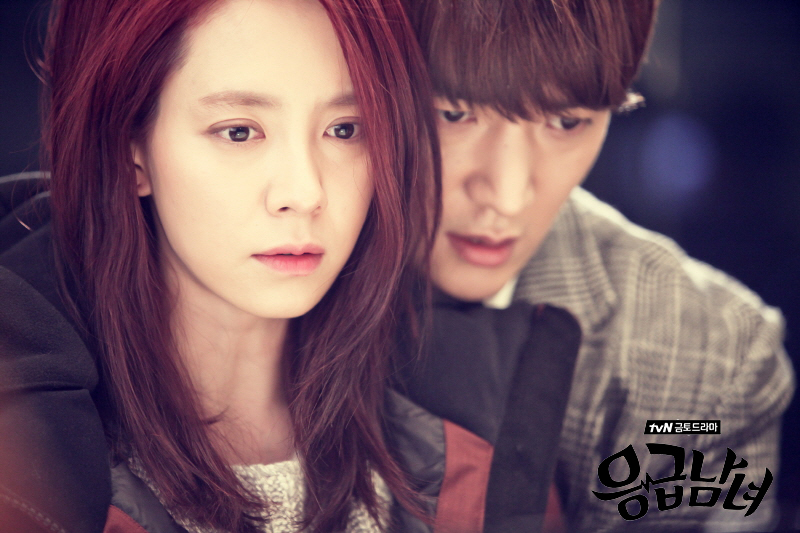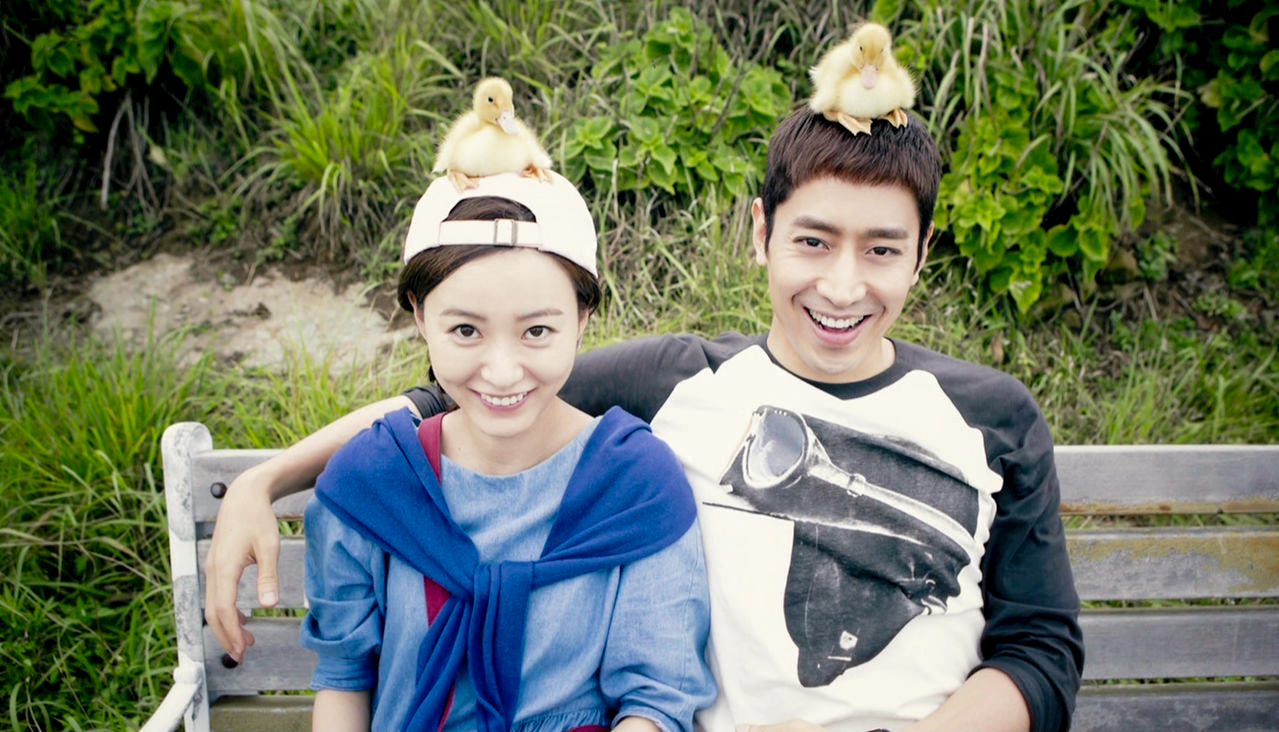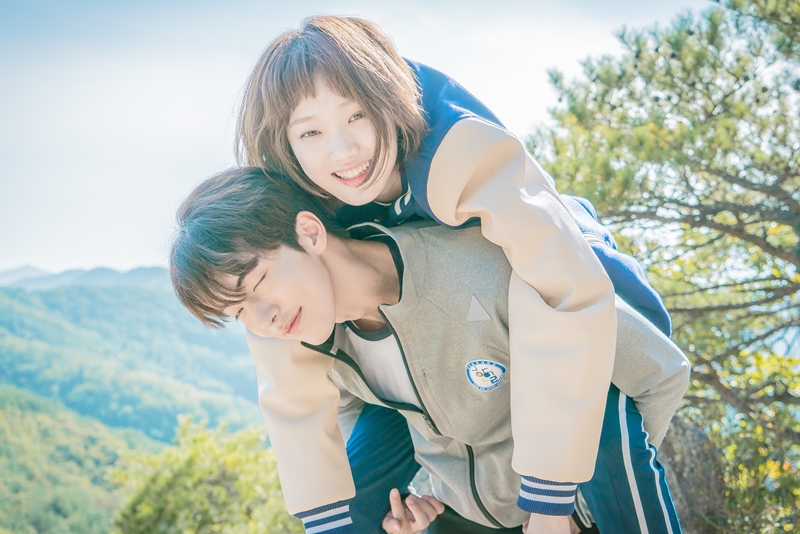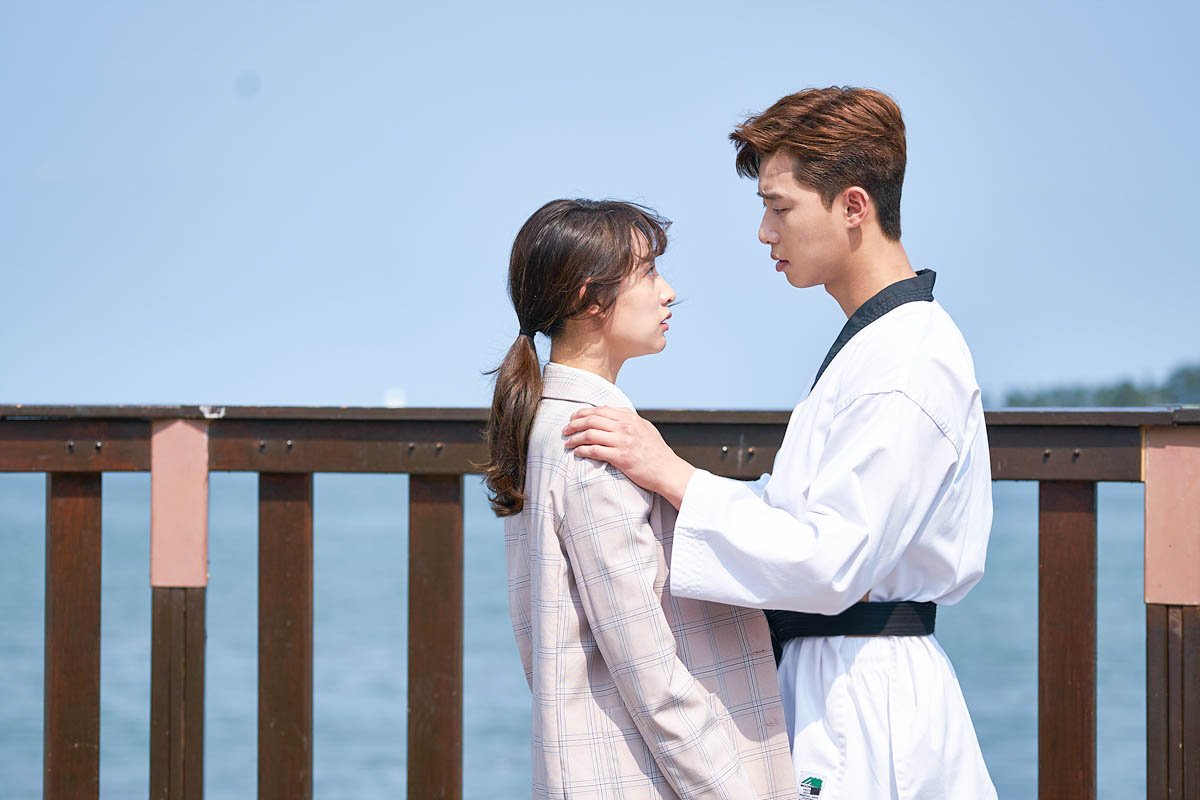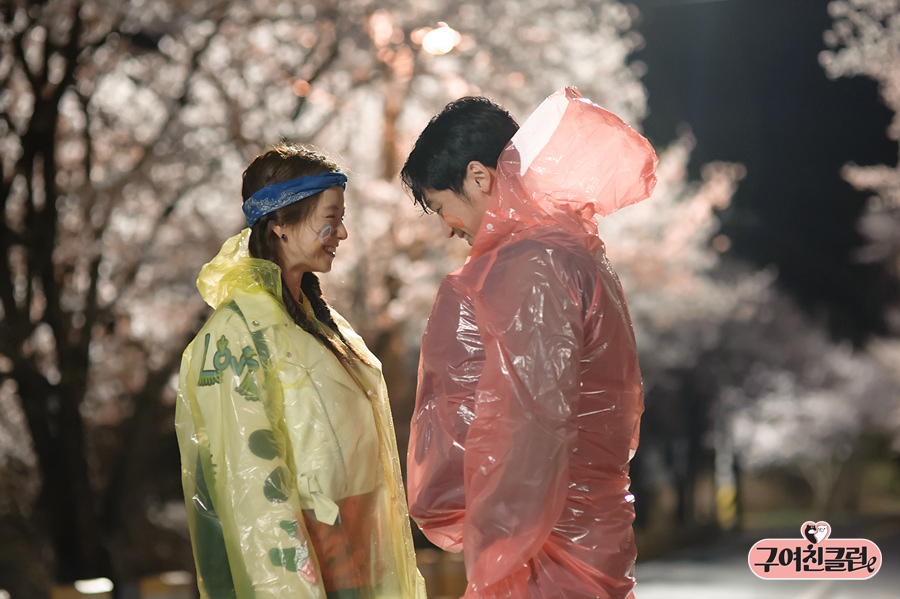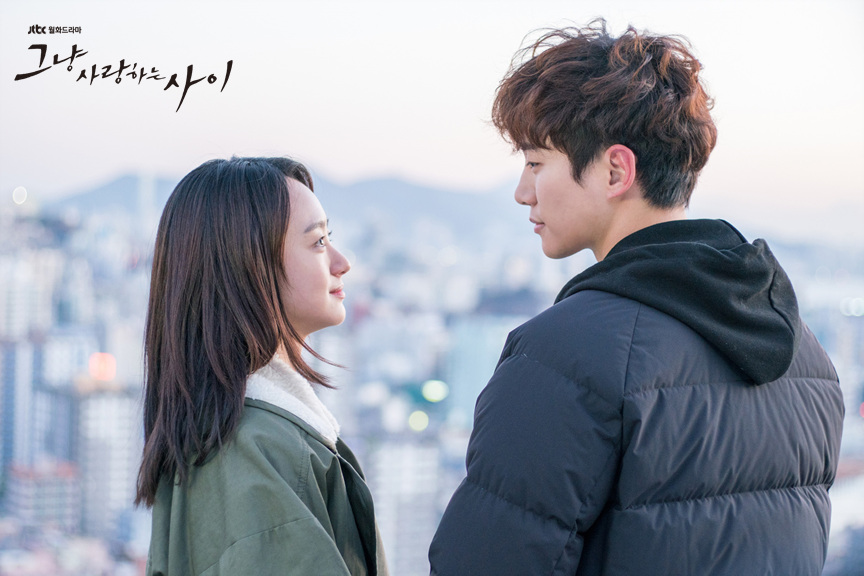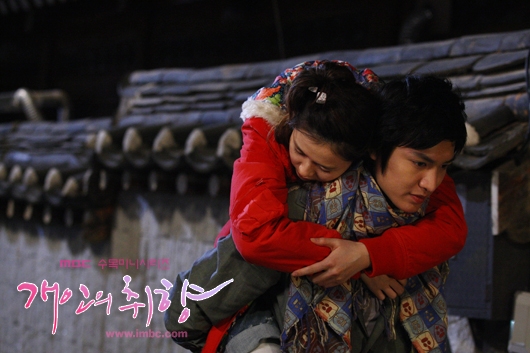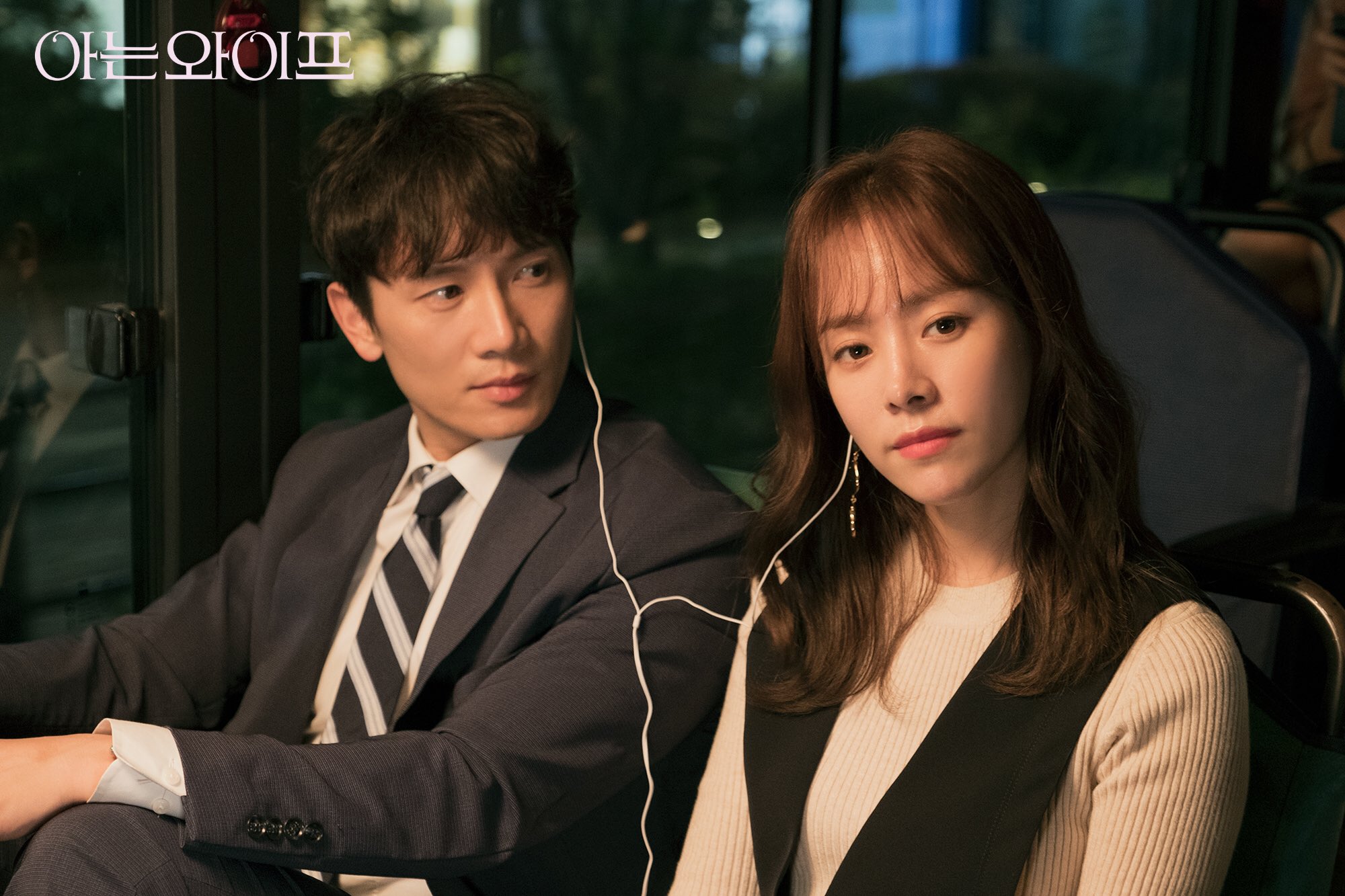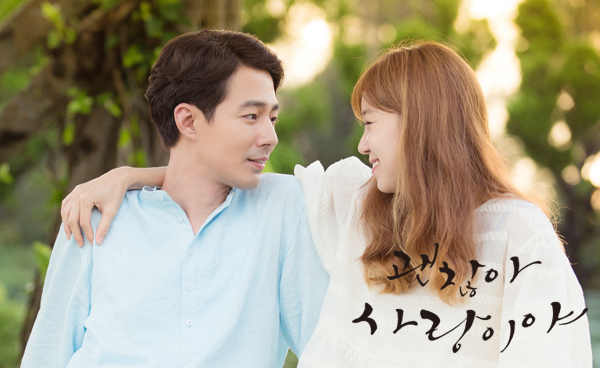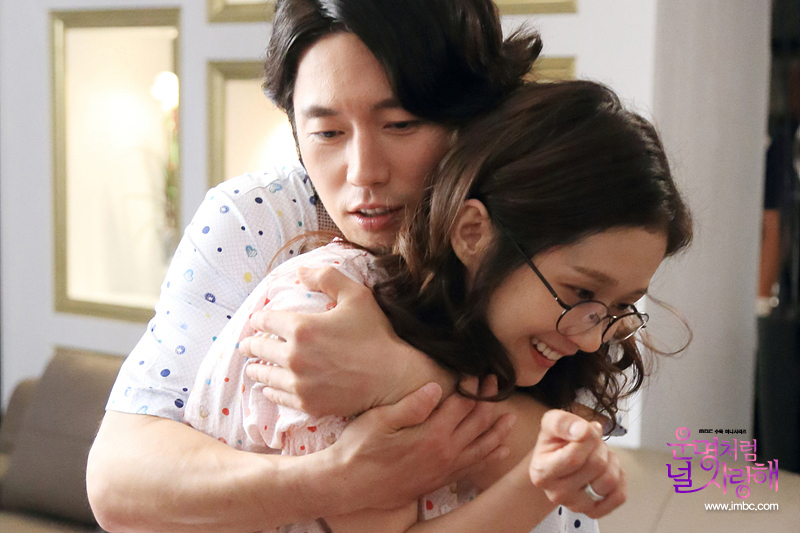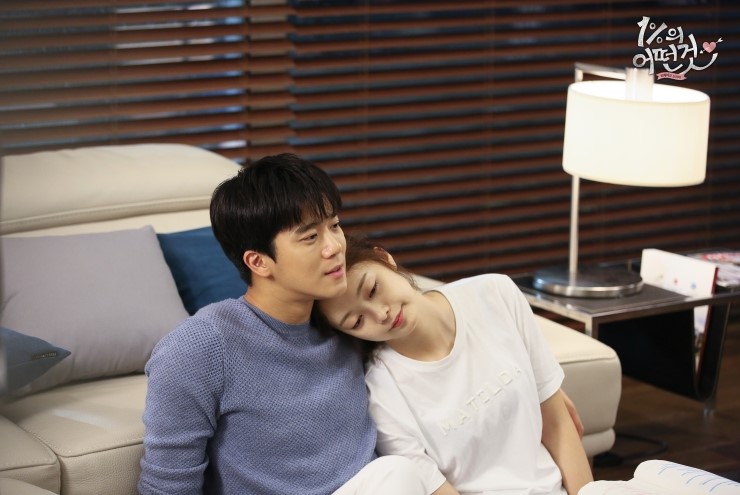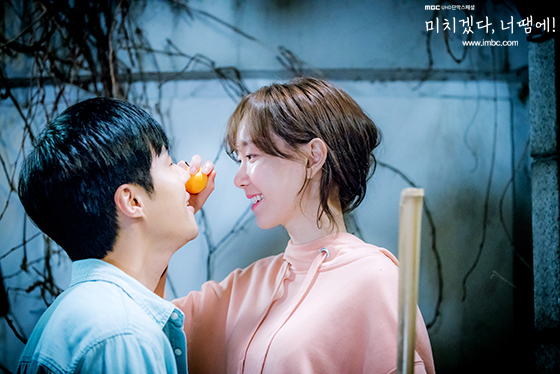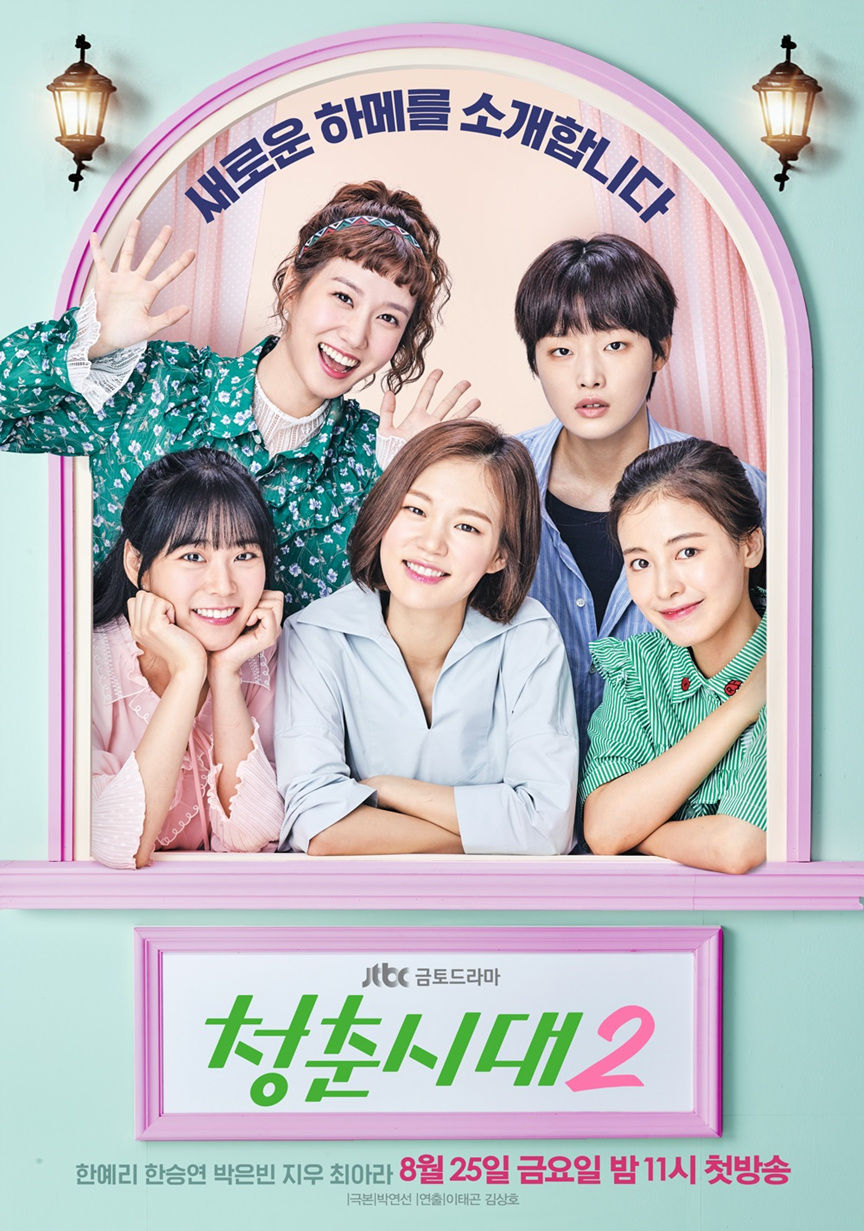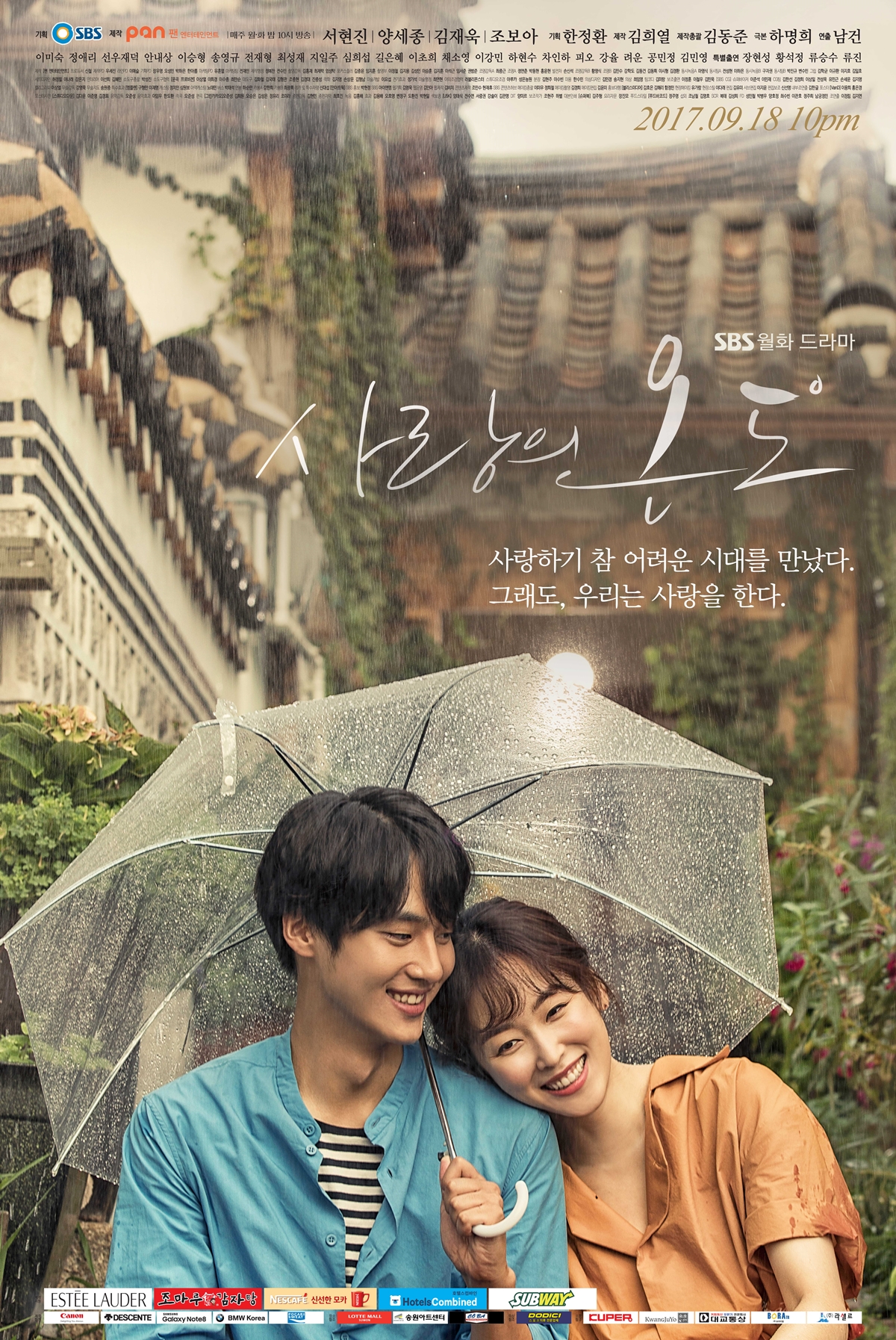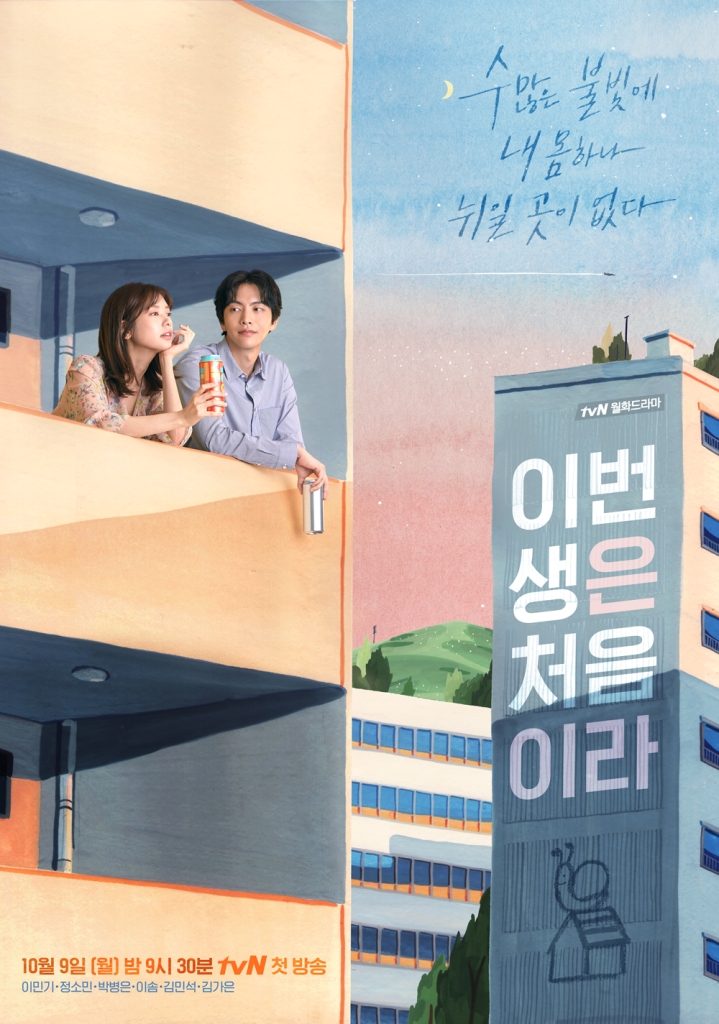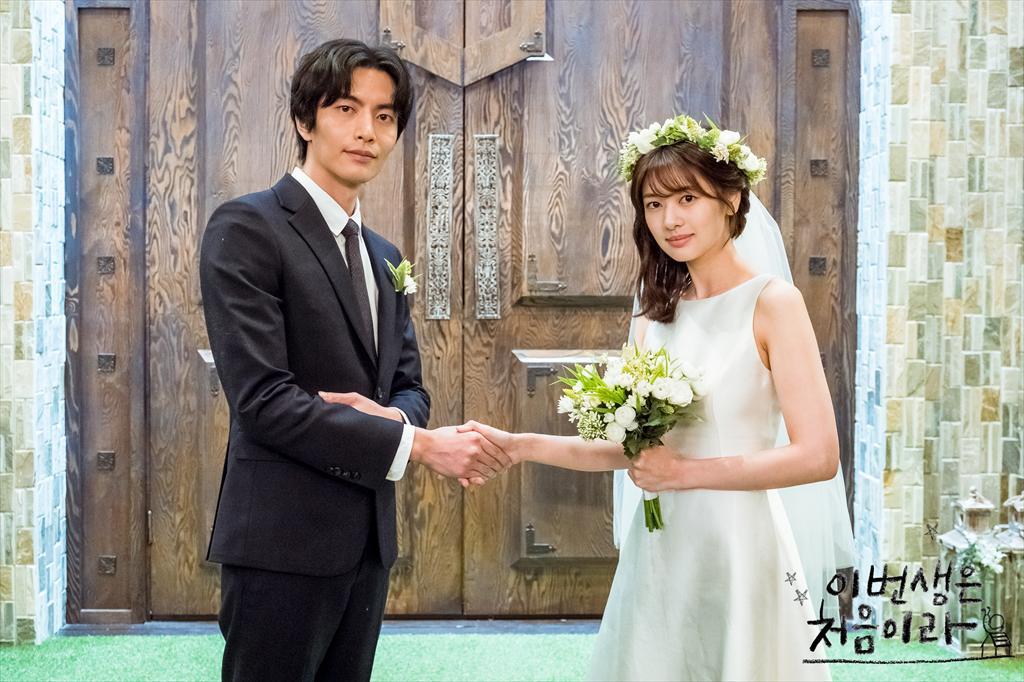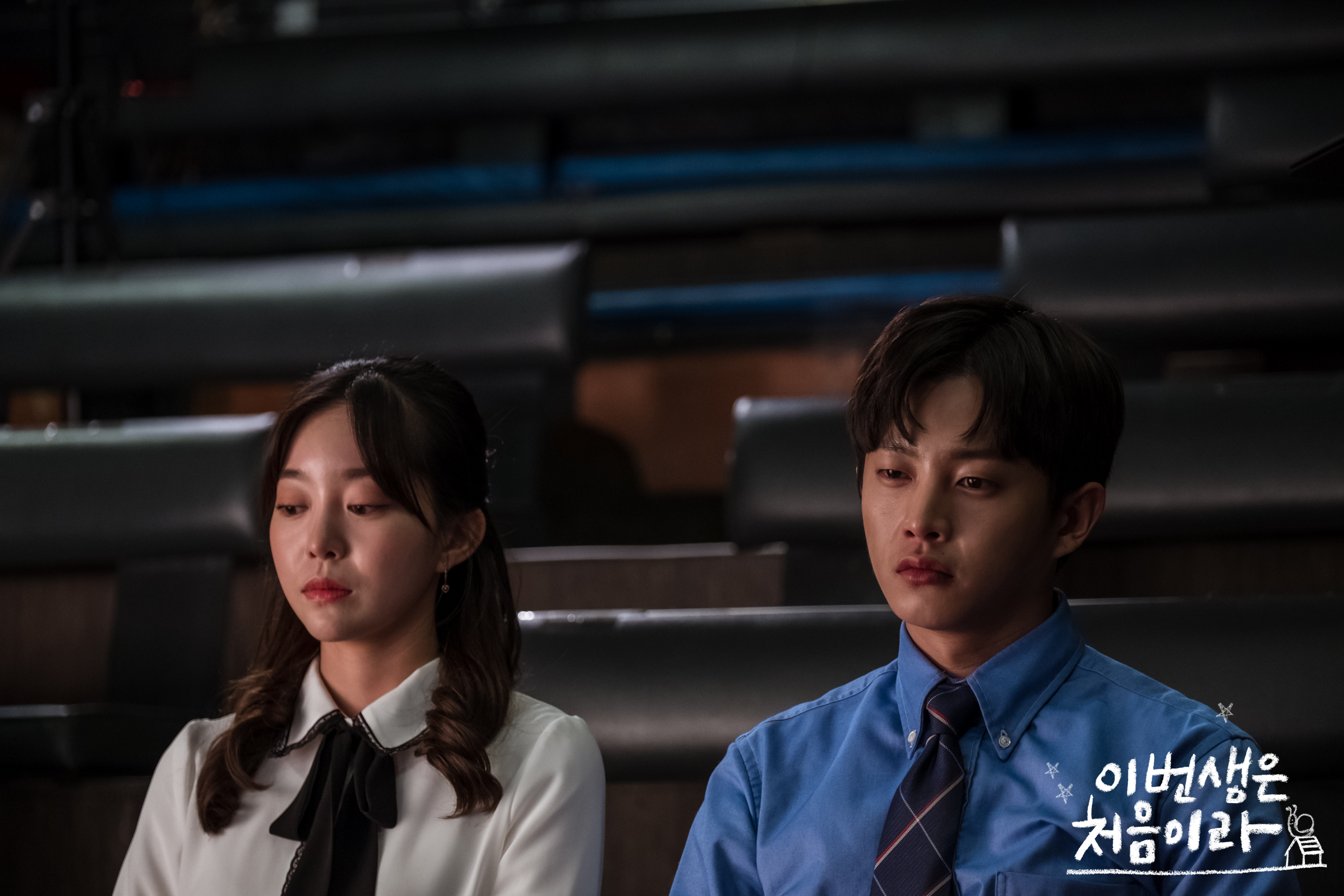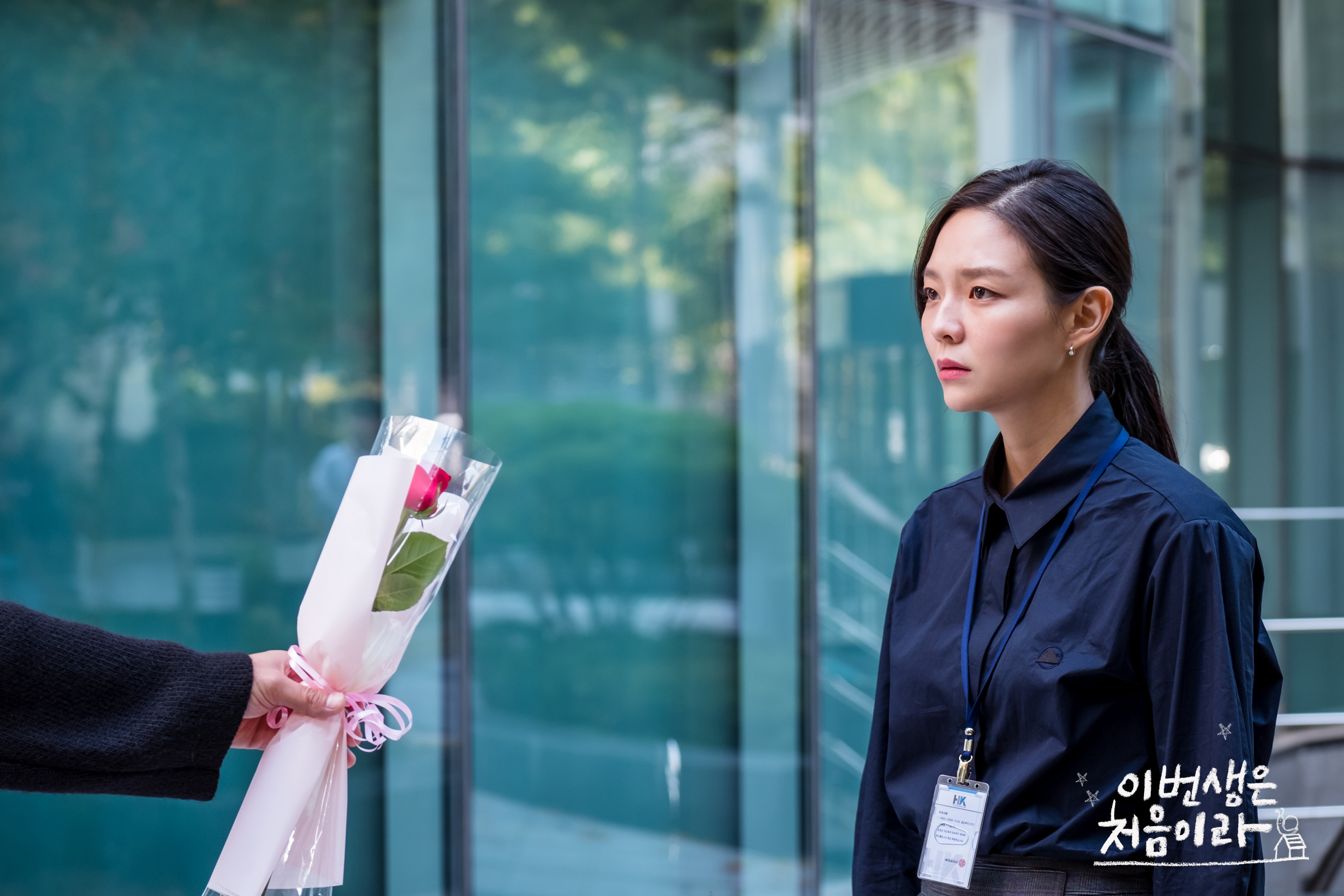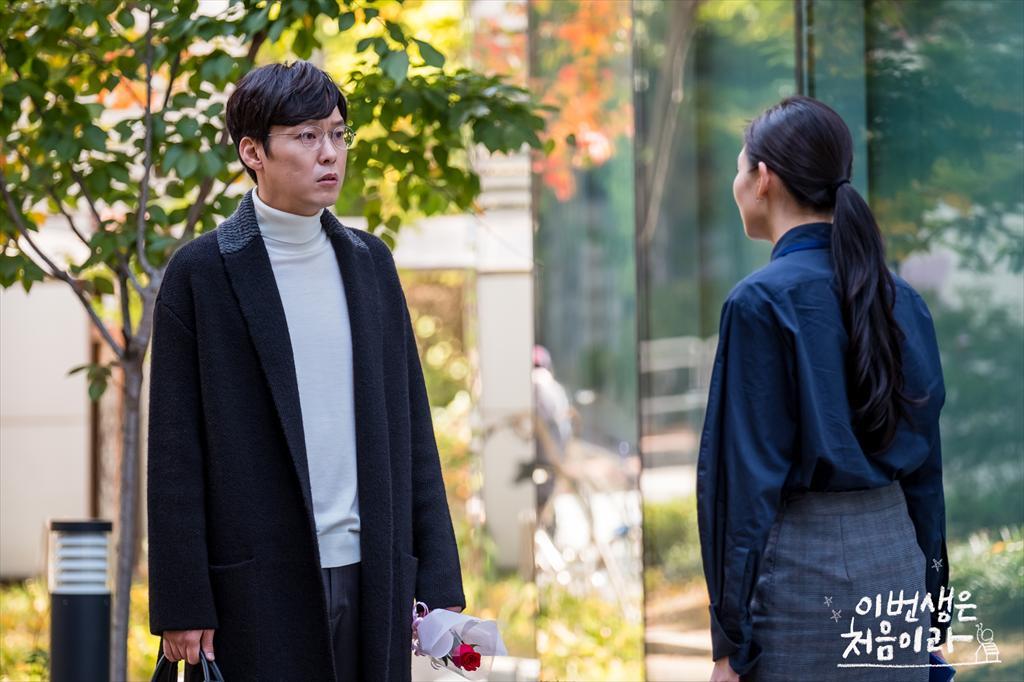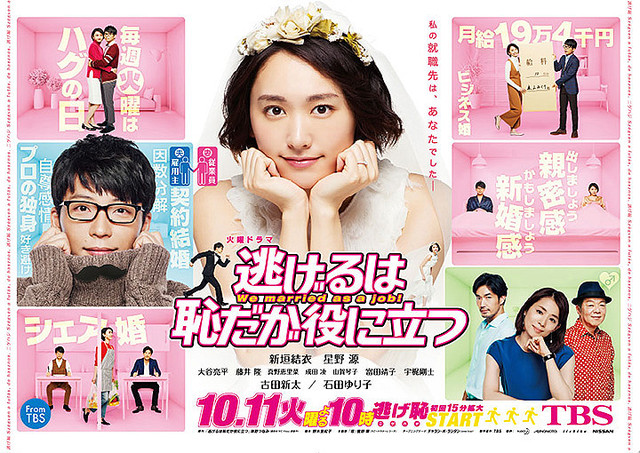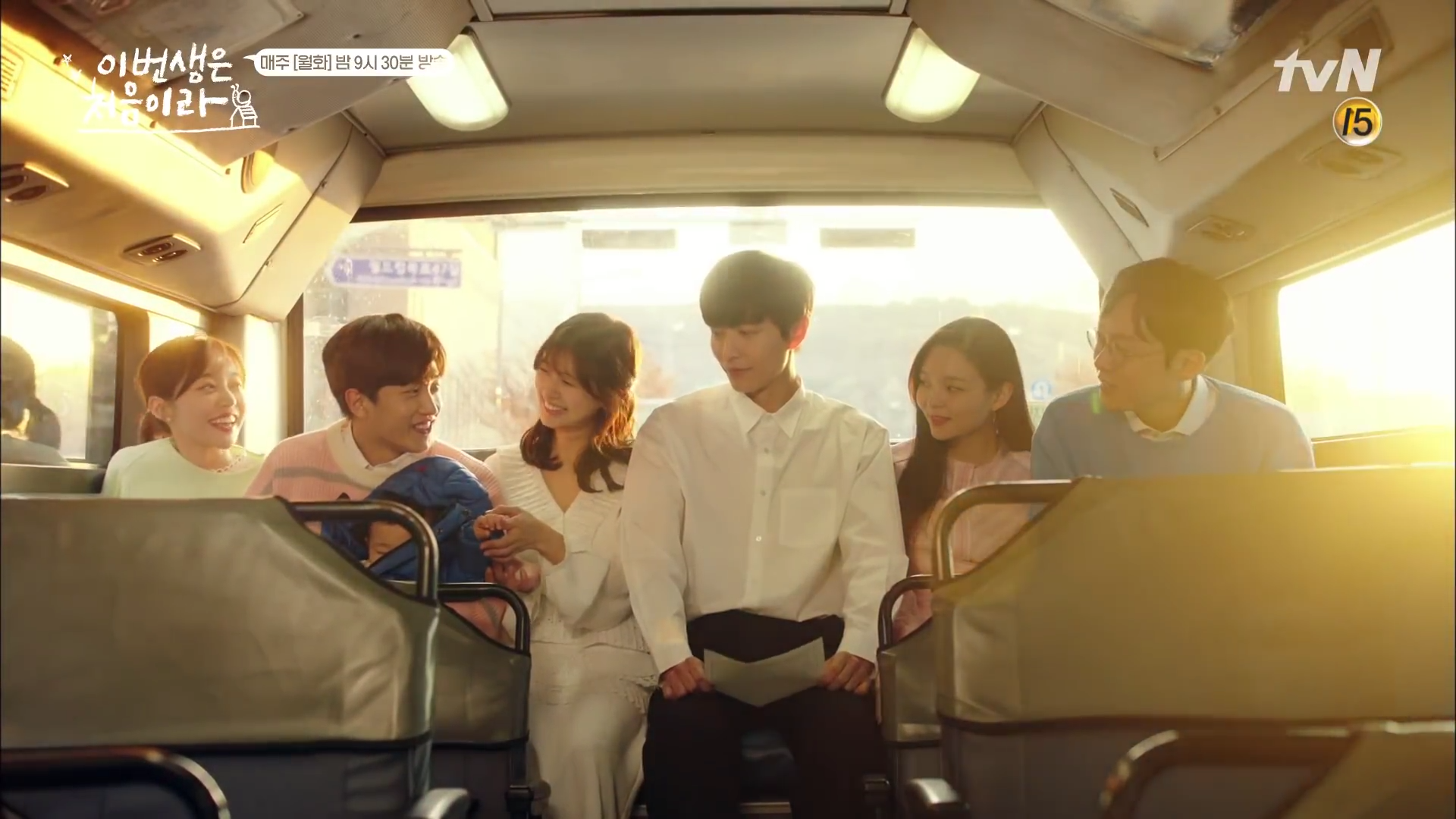
I haven’t been so intrigued and emotionally invested in a drama for quite some time, until Flower of Evil came and blew me away. Not aware that the drama is helmed by Kim Chul Gyu; the director behind commendable dramas, such as Emergency Couple (one of my favourite dramas of all time and the first that triggered my K-drama addiction), On The Way to the Airport, Chicago Typewriter and Mother; it was off my radar of the must-watch upcoming dramas.
From the get-go, tension, intensity, and melodramatic feeling have set the tone for the drama. It opens with Cha Ji Won dive in trying to save Baek Hee Seong, her hand-tied-on-the-bottom-of-the-pool husband. Nearing the end of the scene, we hear them converse in the background,
Baek Hee Seong : Should I tell you what kind of a person I am?
Cha Ji Won : I’ll love you even more from this moment on. I’ll be good to you. Then, before you know it, everything will change. In a way that seems unreal.
This short dialogue serves as prologue (and later also the epilogue) and lays the groundwork for the drama’s narrative.
Perfect is the only word that I can think of to describe Flower of Evil. Maybe not perfect perfect, but more like close to perfection. Despite some minor hiccups (and a major one, but we will get to that later), Flower of Evil is a perfect blend of romance, melodrama, and suspense. Playing with contrast elements, Kim Chul Gyu shared, “This drama has a ton of hidden contrasts. Most notably, the contrast between good and bad, lies and truth, love and hate, and though this is a slightly different concept, the contrast between melodrama and thriller. I think the way these conflicting ideas are all in full force creates the tension that becomes the strength that carries the plot.” Mix this blend with tight plots, high tension scenes (be it the action or the drama), and cliffhanger ending in every episode; stitched them together with meticulous editing; then intensify it with hollowing and melodramatic music (thanks to Kim Joon Seok for such beautiful compositions), Flower Of Evil keeps the audience on the edge of their seat throughout the show and leaves them breathless, every time.
Said to be inspired by Charles Baudelaire’s book of poetry called ‘Les Fleurs du mal’ (‘The Flowers of Evil’ in English) in creating the couple’s relationship, screenwriter Yoo Jung Hee thought it was interesting to ask this question: If someone does their absolute best for their partner in order to take their own dark secret to the grave, can you really say that they are living a lie? “I wanted to beef up that story, so I raised the stakes in making the couple a serial killer and detective.” Brilliant!
[SPOILER ALERT]
Baek Hee Seong (Lee Joon Gi) is a man who hides his past and pretends to love his wife, Cha Ji Won (Moon Chae Won). When detective Cha Ji Won begins to suspect that her husband may be a serial killer, the couple is ultimately forced to confront a dark truth they never wanted to face.

Right from the beginning, we learn that Baek Hee Seong is not really Baek Hee Seong. His friend, Kim Moo Jin (Seo Hyun Woo) recognises him as Do Hyun Soo, an old-time friend who is also a murder suspect. Hee Seong has an antisocial personality disorder, which shown in scenes where he learns to mimic facial expressions, something that he is not capable to do naturally. As the story progresses, we slowly learn that all his efforts to connect to other people are all for Cha Ji Won (and later in life, their daughter). She somewhat has become his shield from the ghost of his father, a symbol of the lingering horrifying past. Without him even realising it, Ji Won has become the only person in his life who gives him a sense of security. She is his anchor, later symbolised by their wedding ring, the thing that gives his hand the stability to do his crafting works. She becomes the guardian who fills the empty spot his mother left. Ji Won is also the one that gives and teaches the meanings to feelings his brain cannot compute.
Cha Ji Won’s unwavering love for Baek Hee Seong, on the other hand, is so pure it almost feels naive at times. But being a detective over the years has trained her to only believe in facts, which keeps her grounded and level headed in challenging times and guides her to escape the conflicting feelings. In the end, no matter how big her doubt is, she always chooses to put faith and trust in the good person Do Hyun Soo that she knows.









Do Hyun Soo’s antisocial personality disorder is a clear case from the start, but the drama also portrays an array of other psychological issues and mental health conditions without having to be so in-your-face and to try too hard to be recognised as a psychological drama while in fact it kind of is. Most key characters in this drama, each shows a form of mental health condition. A foot wrong could have made Flower of Evil pretentious, but on the contrary, I would say that this instead enriched each character’s background and lay out the rationale for their actions.
The real Baek Hee Seong (Kim Ji Hoon) and Do Hyun Soo’s father, Do Min Seok (Choi Byung Mo), are psychopathic serial killers. Baek Hee Seong was raised with privilege by toxic parents. His mother, Nam Gi Ja (Nam Gi Ae), easily gets maniacal and constantly anxious; his father, Baek Man Woo (Son Jong Hak) is authoritative. Do Hyun Soo’s older sister, Do Hye Soo (Jang Hee Jin) seems to be depressive and she suffers from anxiety. Both Hye Soo and Hyun Soo might have inherited the conditions from their father, but the flashbacks show how their environment also played a big, if not major, role in nurturing their conditions. Hats off to each and every one of these actors for portraying such difficult characters with layered emotions, especially to Nam Gi Ae, who gave a chilling performance in “Mother” and Jang Hee Jin who also starred in “On The Way to the Airport”. Amidst the intensity of all these characters, the writer slips in comic relief in Kim Moo Jin (Seo Hyun Woo) character, Hyun Soo’s childhood friend and also Hye Soo’s teenage lover.
Do Min Seok (Choi Byung Mo), Baek Hee Seong (Kim Ji Hoon), Do Hye Soo (Jang Hee Jin), Kim Moo Jin (Seo Hyun Woo), Nam Gi Ja (Nam Gi Ae), Baek Man Woo (Son Jong Hak), Lee Woo Cheo (Choi Dae Hoon), Choi Jae-Sub (Choi Young Joon)
Without a doubt, one stood out the most, Lee Joon Gi. He is magnetic. There is not a moment when I am not in awe of his actorship. He injects micro emotions into his stoicism whenever faced with unexpected situations or incomprehensible actions (mostly of Ji Won). Just like his character, Lee Joon Gi meticulously premeditates and calculates his expressions to deliver a smooth transition from being emotionless to eventually bursting out his primeval emotions when the feelings in Do Hyun Soo’s brain start to unlock at his most desperate moments.






Do Hyun Soo/Baek Hee Seong (Lee Joon Gi)
All the emotions he pours into his acting would have not been so impactful had his counterpart’s performance is subpar, which could have been the case for Moon Chae Won. Moon has a tendency to be bland and too melancholic based on her earlier works, but this time, that melancholic persona works to her advantage in portraying someone who loves with an innocent heart. Together, Moon and Lee are beautiful and bewitching.



Cha Ji Won (Moon Chae Won)
One major flaw that taints what could have been an impeccable drama is Baek Hee Seong’s illogical speedy recovery after 15 years of being in comatose. Having said that, it does not ruin everything that has been built up until that moment. It just leaves a slightly bad taste in the mouth.
Kim Chul Gyu takes time to wrap things up in the last episode and weave the thread to create a perfect circle. The intense journey ended with a beautiful bluesy happy ending that leaves us breathless till the end.
Through a series of tumultuous and unfortunate incidents, Cha Ji Won and Baek Hee Seong, later Do Hyun Soo, decide to stand by each other to the end. They have faith and put trust in each other, which triumphs every time doubts creeping in. Above all, Flower of Evil is a love story. A perfect one I must say.










